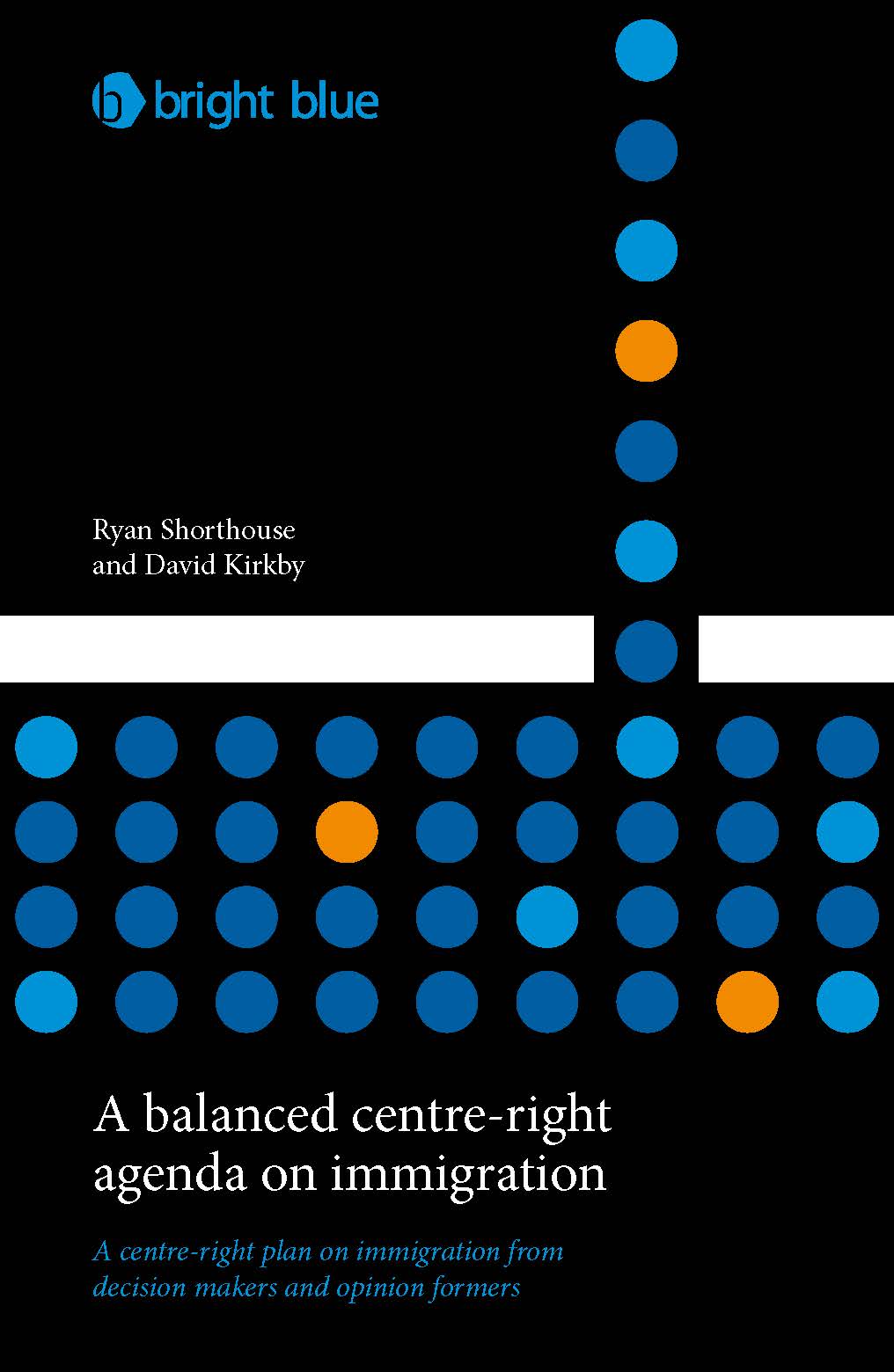Centre-right think tank Bright Blue has just published its report ‘A Balanced Centre-right Agenda on Immigration’. The report offers a distinctive and confident voice on immigration, as well as presenting a plan for a balanced and constructive immigration agenda.
‘A Balanced Centre-right Agenda on Immigration’ says that firstly honesty is needed, that immigration does bring challenges, but overall the evidence – though still developing – suggests it has a positive economic impact. It might increase demands on key public services such as schools and housing, it also, according to the report, depresses the wages of the lowest fifth of workers, but this is time-limited and ignores the potential positive impact of immigration on disposable incomes through reducing the cost of consumer goods. Overall, immigration boosts GDP and increases entrepreneurial activity. The OECD has found that immigration has a net fiscal benefit. It is good for businesses too, who can hire the people with the skills they need.
But the report says that economic arguments alone are insufficient and that voters are more concerned with the cultural impact of immigration – for example, communities living separate lives or the dilution of national identity. Taken in isolation, just talking about the economic benefits risks alienating those who doubt that a stronger national economy will benefit their household finances.
According to the report the second element of a new centre-right agenda on immigration will look to convey positively, and improve, the cultural impact of immigration. The report says that immigrants tend to bring values and behaviours that should be welcomed by the centre-right: a strong work ethic, family values, and religious observance. Greater integration of immigrants with native Britons is important here and is supported by the majority of Britons, including immigrants themselves.
Bright Blue’s last report showed that among people who knew immigrants well, there was a strong agreement that a majority of immigrants participated in local community activities such as getting involved at the local school. Integration can also be enhanced by the building and celebration of an inclusive British identity, important for reducing ethnic and even socio-economic tensions. Interestingly, individuals from BME groups are much more likely to self-identify as ‘British-only’ than those of white ethnicity. Nation-building is a theme that the centre-right, given its historic and political affinity with nationhood, is well placed to develop.
Thirdly, the report says the centre-right should show it is developing a conception of immigration based on contribution. There is a firm consensus about the kinds of immigrants Britain should be welcoming: international students, skilled professionals, skilled manual workers and care workers. The challenge for the centre-right is to develop immigration policies and narratives that explicitly welcome and prioritise ‘contributing’ immigrants.
The report concludes that the final component of a new centre-right plan on immigration is that there should be a move away from the immigration cap. A cap on net migration is arbitrary, unreliable and indiscriminate. While it is not necessary to do without some form of cap on migration levels, the report says the centre-right needs to revise it so we don’t see a reduction in ‘contributing’ migrants. It also needs to look beyond the net migration figures in order to establish a record of competence on immigration and manage the system effectively.
Finally, the report says that moving the debate away from a narrow focus on the net migration figures, and instead conveying competence and welcoming immigrants who will contribute both economically and culturally to Britain, should be components of a new, balanced centre-right agenda.

